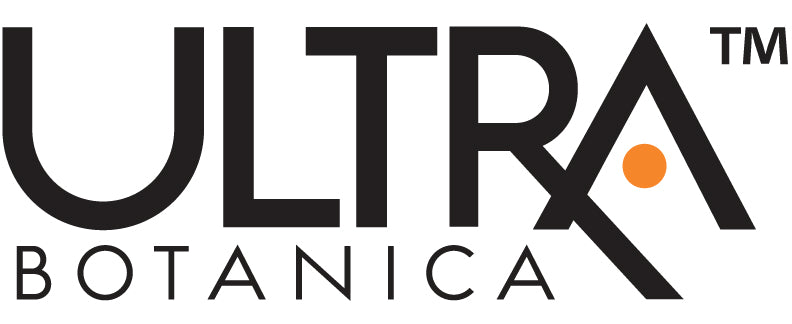How much protein do I need? What should my daily protein intake be? This seemingly simple question often leads to confusion.
You hear about athletes downing protein shakes, bodybuilders obsessed with their macros, and conflicting advice about whether a high-protein diet is healthy.
We'll break down how much protein you need every day, factoring in your individual needs, and why protein plays a vital role in maintaining good health. Get the answers to these questions and more.
Understanding Protein: Why Is It So important?
Think of proteins as the building blocks of your body. They're essential for growth, repair, and maintenance of everything from your muscles and bones to your hair and skin.
Proteins even play a vital role in your immune system, hormones, and enzymes. These mighty molecules are made up of smaller units called amino acids.
Nine amino acids are considered "essential amino acids" because your body can't produce them on its own and needs to consume them in foods you eat. It may leave you wondering, "How much protein do I need?"
Busting the Myth: Not All Protein Sources Are Equal
When it comes to protein, not all sources are created equal. Certain foods provide all nine essential amino acids, earning the title "complete proteins".
Typically, these are animal sources like meat, poultry, fish, eggs, and dairy. However, plant-based eaters don't need to worry. Many plant foods also offer protein.
Beans, lentils, quinoa, and nuts are great examples.
Though often considered "incomplete proteins" because they may lack one or more essential amino acids, they can still be combined throughout your day to meet your needs.

So, How Much Protein Do I Need?
Let's get to the heart of the matter. The Recommended Dietary Allowance (RDA) for protein is 0.8 grams of protein per kilogram of body weight or 0.36 grams per pound.
But hold on... Many factors influence how much protein you need:
- Age: As you get older, especially past 40, your muscle mass naturally declines. That's why a slightly higher protein intake is often recommended for older adults to help preserve muscle mass, strength and mobility. Older adults can need up to 50% more than the Dietary Reference Intake (DRI). The review in Nutrients suggests somewhere between 1.3 and 1.8 grams of protein per kilogram of body weight might be more beneficial. That works out to about 88 grams to 122 grams for women and 105 grams to 145 grams for men.
- Activity Level:Are you a gym enthusiast or couch potato? If you regularly work out, especially with strength training, you'll need more protein to help build and repair those muscles. Current guidelines from the Food and Nutrition Board of the Institute of Medicine and the American College of Sports Medicine recommend 1.2 to 1.7 grams of protein per kilogram of body weight daily for physically active folks.
- Fat Loss Goals: Protein can play a key role in weight loss by helping you feel fuller longer and boosting your metabolism. Those aiming to shed fat may benefit from increasing their protein intake within a healthy range.
- Health Status: Some health conditions may impact your protein requirements. It is important for those with kidney disease to speak with their healthcare provider about the amount of protein that is safe for them.
To determine your individual protein needs, you can use this helpful table:
| YOUR WEIGHT | PROTEIN INTAKE (Per Day) |
| 100 pounds (45 kilograms) | 54 to 77 grams |
| 150 pounds (68 kilograms) | 82 to 116 grams |
| 200 pounds (91 kilograms) | 109 to 155 grams |
| 250 pounds (133 kilograms) | 136 to 192 grams |
If you're not sure how to calculate your weight in kilograms, you can use an online tool like this pounds to kilograms converter. Or, to convert pounds to kilograms, simply divide your weight in pounds by 2.2.

More Isn't Always Better
Just because some protein is good doesn't mean loading up is better. Your body can't store extra protein, so any extra gets broken down for energy or stored as fat.
This also puts a strain on your kidneys to filter the byproducts.
It is important to stay within a healthy protein range. That said, eating enough protein helps build muscle while minimizing fat gain.
To lose weight, you'll want to swap out carbs for more protein to lose flab and build muscle. Because when you lose weight, you do NOT want to lose muscle... you want to lose flab.
Results of a Meta-Analysis
A meta-analysis of 49 studies with 1,863 participants found that consuming 1.6 grams of protein per kilogram of body weight per day meant greater muscle mass gains.
Those who added a protein-rich meal (around 30 g of protein) and reached 1.6+ g/kg/day gained 300 grams more of fat-free mass (FFM) and lost 400 grams of fat over a 3-month period, compared to control groups who maintained their previous protein intake of about 1.5/g/kg/day.
That's nearly one pound of extra FFM gained and a pound of fat lost, just by eating a bit more protein. Trained participants saw greater benefits for eating more protein than untrained participants did.
Furthermore,1.6 g/kg/day was the average amount of protein to maximize muscle mass, not the maximum. A small study of bodybuilders showed similar results. So, it appears that 1.6 g/kg/day was needed to optimize muscle mass.
How Much Protein Do I Need If I'm Overweight or Obese?
Because it's your lean body mass rather than total body weight that primarily
determines how much protein you need, you'll need less if you're overweight and hence less lean.
In this case, your recommended daily protein need is 1.2 to 1.5 grams per kilogram per day. Remember that when we say weight loss, we really mean fat loss. When you're in a calorie deficit, a high-protein diet helps you lose more fat and gain more muscle.
In a study of women, the higher protein group lost more fat and gained more muscle, even though they consumed 400 more daily calories. What's more, a high-protein diet will increase your basal metabolic rate.

What Happens When Seniors Don't Get Enough Protein?
Inadequate protein intake in older adults can lead to a range of health problems, particularly since protein plays a crucial role in so many bodily functions. Potential consequences of insufficient protein consumption include:
- Muscle Loss (Sarcopenia): One of the most significant impacts of low protein intake is muscle loss, known as sarcopenia. This condition can lead to decreased strength, mobility, and overall physical function, increasing the risk of frailty, falls and fractures.
- Weak Immune System: Protein is essential to produce antibodies and other immune cells. A lack of protein can weaken immune response, making you more susceptible to infections and illnesses as you age.
- Poor Wound Healing: Protein is vital for tissue repair and regeneration. Insufficient protein can impair wound healing, making injuries or surgical wounds heal more slowly.
- Loss of Bone Mass: Adequate protein is important for maintaining bone density. Low protein intake can contribute to bone loss, increasing the risk of osteoporosis and fractures.
- Fatigue and Weakness: Inadequate protein can lead to general fatigue and weakness, affecting daily activities and quality of life.
- Hormonal Imbalances: Proteins are essential for the synthesis of hormones. Low protein intake can disrupt hormonal balance, impacting metabolism, appetite, and mood.
- Cognitive Decline: Emerging research suggests that protein intake may play a role in cognitive health. Insufficient protein could potentially contribute to cognitive decline or exacerbate existing conditions like dementia.
- Edema (Fluid Retention): Protein helps maintain the balance of fluids in the body. Low protein levels can lead to fluid retention and swelling, especially in the legs and abdomen.
- Appetite Changes: Low protein intake can lead to changes in appetite regulation. A high protein diet and red meat is satiating, helping you feel full for longer and reducing your tendency to snack on carbs and junk foods.
Older adults need to consume enough protein to support muscle health, immune function, and overall well-being.
If you or someone you know is concerned about protein intake, you should consult with a healthcare provider or registered dietitian for personalized guidance and dietary recommendations.
What Are Some Smart Choices for Getting My Protein?
So, you now have a better idea of how much protein you need, but where should you get it? Think variety and quality. Incorporate a mix of animal and plant-based protein sources into your meals.

Here Are Some of the Best Ways to Up Protein Intake
- Lean Protein: Select lean cuts of grass fed meat, poultry without skin, and fatty fish like salmon, tuna, or cod. A three ounce serving of chicken or turkey provides approximately 19 grams of protein.
- Dairy Delights: Plain full-fat yogurt, cottage cheese, and milk are tasty ways to sneak in some extra protein. One cup of yogurt made from full-fat milk contains about 8.5 grams of protein.
- Plant Power: Beans, lentils, tofu, tempeh, and edamame are great additions to soups, salads, and stir-fries.
- Eggs: A simple, versatile protein powerhouse. A hard-boiled egg provides 6 grams of protein.
- Nuts and Seeds: Perfect for snacking. Try almonds, walnuts, Brazil nuts, pumpkin seeds, and more, for a healthful boost of protein and healthy fats.
- Protein Supplements: Protein powders, whey powder, etc. Many of these provide around 20 g of protein plus whatever milk or yogurt you blend it into.
Don't be afraid to experiment with different combinations and recipes. Try substituting beans for meat in your favorite chili recipe. Or add some beans to a vegetable recipe.
Blend spinach and Greek yogurt into a smoothie. Or see if a protein shake with plain yogurt becomes a great breakfast that won't have you craving a bagel at 10:00. The options are truly endless.
Protein Quality Matters
You know all proteins are comprised of amino acids. And while some foods offer a full spectrum of these essential building blocks, others might be lacking in certain types.
That’s why including diverse protein sources in your diet can be helpful, making sure you cover all your bases. This is especially true for plant-based proteins, since they tend to have a less complete amino acid profile than animal sources.
A recent study confirms this, showing that lean meats and dairy products contain all the ‘essential’ amino acids, while these are less abundant in plant-based diets.
For example, rice and beans each provide different sets of amino acids, but together they form a complete protein source.
Don't automatically assume vegetarian or vegan options are always healthy. They can sometimes be high in unhealthy saturated fats, salt, and additives -- especially when found in boxes or cans.
Timing is Everything
Spreading your protein intake out can better support muscle protein synthesis (the process of building and repairing muscle tissue) and help you stay full and energized.
Consider This Simple Approach
Aim to have around 15–30 grams of protein per meal and 10–15 grams per snack. If you don't snack, aim for about 30-35 grams per meal. This can help you maintain a steady intake of amino acids throughout the day.
Conclusion
Figuring out your recommended daily protein intake isn't as complicated as it might seem. The basic rule is to consider your unique factors, like age, activity level, current leanness, and health goals.
Then focus on making sure your protein sources are high quality and consumed throughout the day to maximize absorption. So, how much protein do I need? This depends largely on your individual needs.

Frequently Asked Questions
How do I calculate how much protein I need?
The Recommended Dietary Allowance (RDA) for protein is 0.8 grams of protein per kilogram of body weight or 0.36 grams per pound. But factors like age, activity level, fat loss goals, and your current health status influence how much protein you need.
How much protein do I need to lose weight?
If you're overweight and less lean, your recommended daily need is 1.2 to 1.5 grams of protein per kilogram, per day. To lose weight, you'll want to swap out carbs for more protein to lose flab and build muscle.
How much protein do I need to build muscle?
Studies have found that people who consume a minimum of 1.6 grams of protein per kilogram of body weight per day produce greater muscle mass gains.





Share:
Soda Health Risks: The Hidden Dangers in Your Fizzy Drinks
HIIT for Seniors: Safe Strategies for Enhanced Fitness